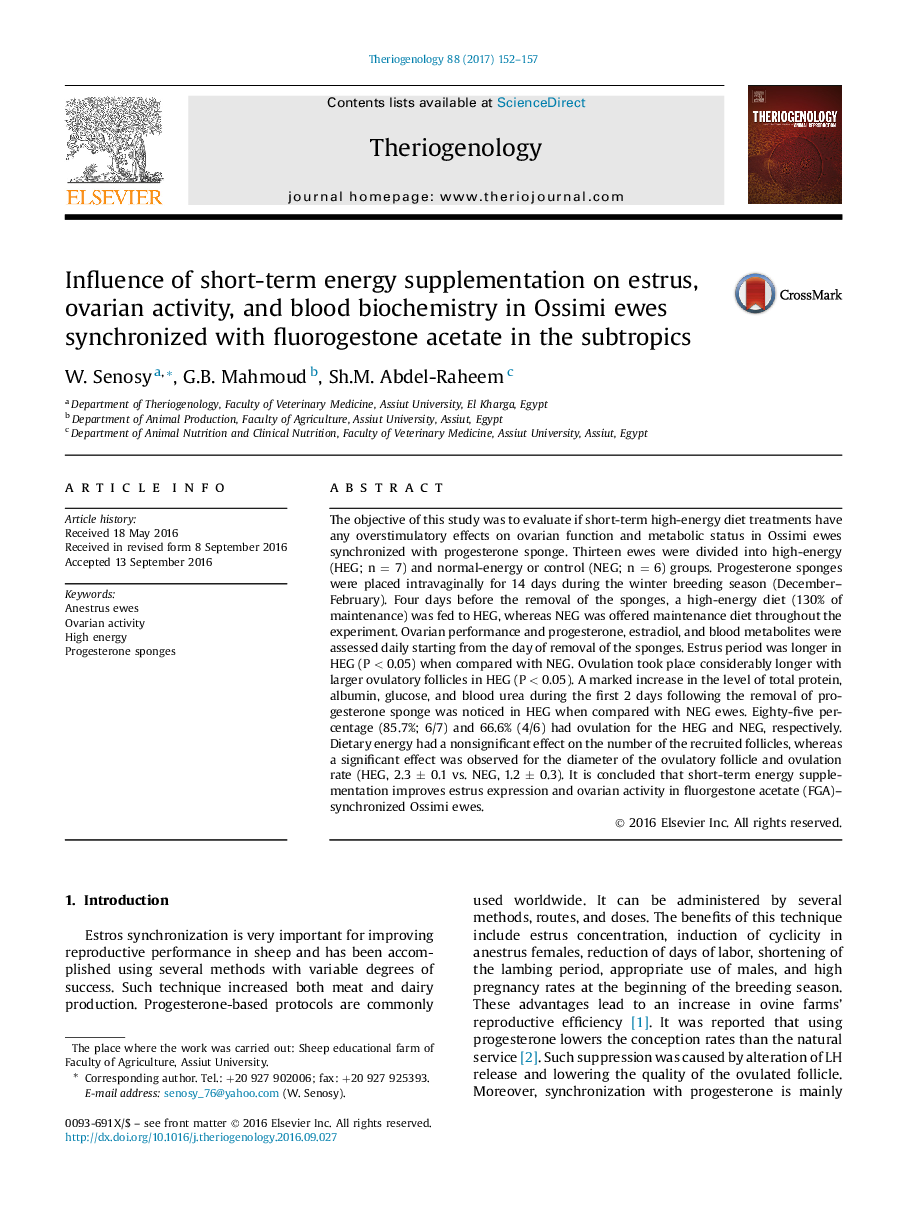| Article ID | Journal | Published Year | Pages | File Type |
|---|---|---|---|---|
| 5523264 | Theriogenology | 2017 | 6 Pages |
The objective of this study was to evaluate if short-term high-energy diet treatments have any overstimulatory effects on ovarian function and metabolic status in Ossimi ewes synchronized with progesterone sponge. Thirteen ewes were divided into high-energy (HEG; n = 7) and normal-energy or control (NEG; n = 6) groups. Progesterone sponges were placed intravaginally for 14 days during the winter breeding season (December-February). Four days before the removal of the sponges, a high-energy diet (130% of maintenance) was fed to HEG, whereas NEG was offered maintenance diet throughout the experiment. Ovarian performance and progesterone, estradiol, and blood metabolites were assessed daily starting from the day of removal of the sponges. Estrus period was longer in HEG (P < 0.05) when compared with NEG. Ovulation took place considerably longer with larger ovulatory follicles in HEG (P < 0.05). A marked increase in the level of total protein, albumin, glucose, and blood urea during the first 2 days following the removal of progesterone sponge was noticed in HEG when compared with NEG ewes. Eighty-five percentage (85.7%; 6/7) and 66.6% (4/6) had ovulation for the HEG and NEG, respectively. Dietary energy had a nonsignificant effect on the number of the recruited follicles, whereas a significant effect was observed for the diameter of the ovulatory follicle and ovulation rate (HEG, 2.3 ± 0.1 vs. NEG, 1.2 ± 0.3). It is concluded that short-term energy supplementation improves estrus expression and ovarian activity in fluorgestone acetate (FGA)-synchronized Ossimi ewes.
